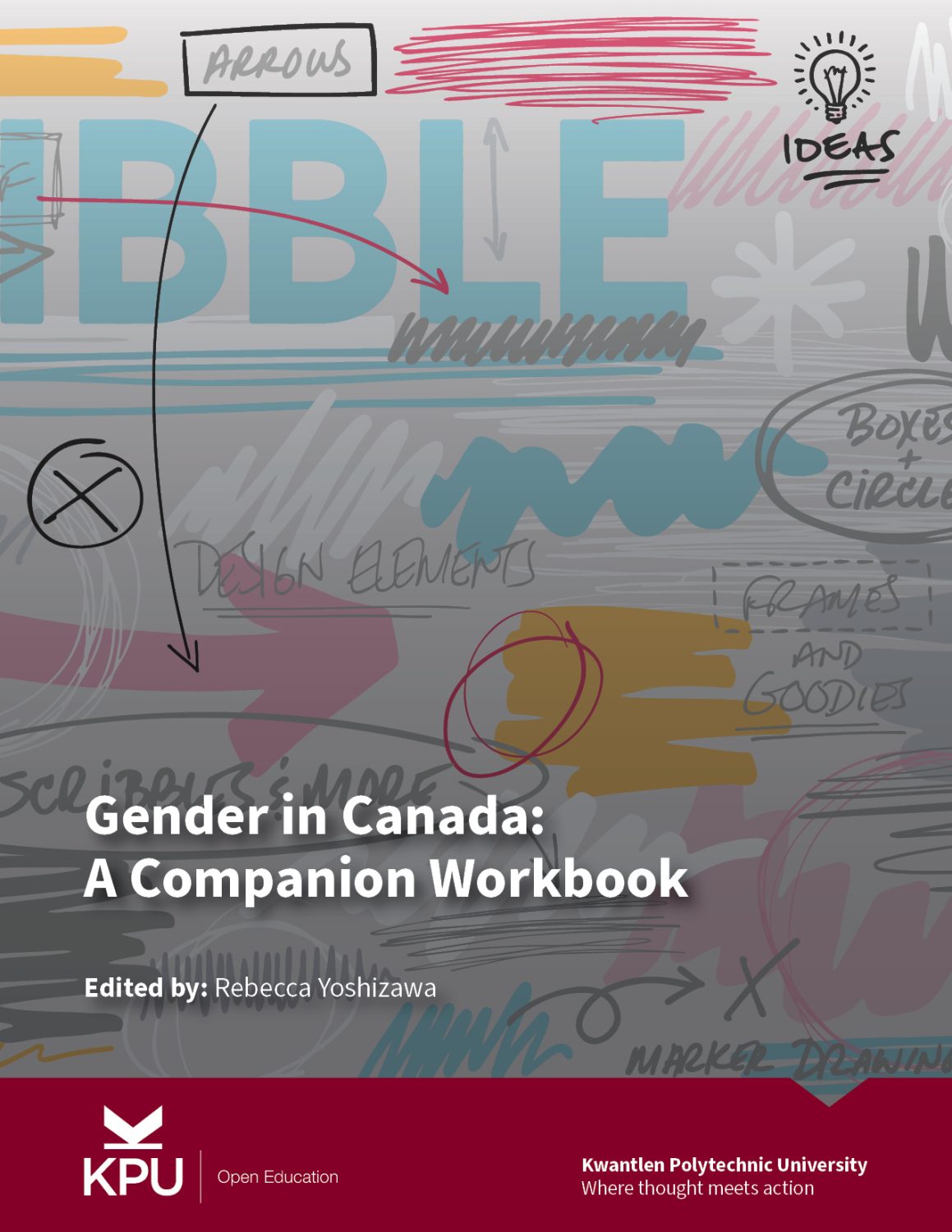Book Title: Gender in Canada: A Companion Workbook

Download this book
Book Description:
This workbook is designed for first or second-year sociology of gender or gender studies courses, focusing on the Canadian context. It is divided into five topics - Theory and Concepts, Institutions, Work, Family and Intimate Relationships, and Bodies and Health. This workbook does not replace a textbook, instructor teachings through lectures, class discussion, class assignments, or other standard undergraduate course materials. Instead, this is an activity book: a course companion, working alongside and with those course materials. It is designed to build competency, capacity, and confidence with course materials, concepts, and arguments. It does this by embracing the concepts of embodied learning, iterative scaffolding, and reflexive insight. "Embodied" means doing things with your body and not just your mind; "scaffolding" means breaking things down into constituent parts that can be gathered together to build something bigger; and "reflexive" means thinking about oneself in relation to broad concepts and contexts around us. The workbook presents four types of content. (1) Each chapter has one or two pages of written content deemed "Insights to Think About," which are summative guides to help students grab onto big ideas. (2) The chapters also have "Words to Try," encouraging a usable lexicon. (3) Chapters have thoughtfully designed "Activities." The activities help students to get ideas down, give those ideas meaning and order, and prepare students to do more engaged work in course conversations and higher-stakes assignments. (4) Finally, each section ends with "My Insights On," where students can record their "big picture" ideas and things they want to explore more in their course discussions and other assignments.
This workbook works best when printed off and engaged with non-digitally. The print PDF is available as a link to download in the Introduction Chapter and here: Download Print PDF
Contents
Book Information
Book Description
This workbook is designed for first or second-year sociology of gender or gender studies courses, focusing on the Canadian context. It is divided into five topics – Theory and Concepts, Institutions, Work, Family and Intimate Relationships, and Bodies and Health.
This workbook does not replace a textbook, instructor teachings through lectures, class discussion, class assignments, or other standard undergraduate course materials. Instead, this is an activity book: a course companion, working alongside and with those course materials. It is designed to build competency, capacity, and confidence with course materials, concepts, and arguments. It does this by embracing the concepts of embodied learning, iterative scaffolding, and reflexive insight. “Embodied” means doing things with your body and not just your mind; “scaffolding” means breaking things down into constituent parts that can be gathered together to build something bigger; and “reflexive” means thinking about oneself in relation to broad concepts and contexts around us. The workbook presents four types of content.
- Each chapter has one or two pages of written content deemed “Insights to Think About,” which are summative guides to help students grab onto big ideas.
- The chapters also have “Words to Try,” encouraging a usable lexicon.
- Chapters have thoughtfully designed “Activities.” The activities help students to get ideas down, give those ideas meaning and order, and prepare students to do more engaged work in course conversations and higher-stakes assignments.
- Finally, each section ends with “My Insights On,” where students can record their “big picture” ideas and things they want to explore more in their course discussions and other assignments.
The complete hardcopy version of this workbook is available here: https://kpu.pressbooks.pub/app/uploads/sites/294/2023/02/Gender-in-Canada-A-Companion-Workbook-2023.pdf
License
Gender in Canada: A Companion Workbook Copyright © 2023 by Rebecca Yoshizawa is licensed under a Creative Commons Attribution 4.0 International License, except where otherwise noted.
Subject
Gender studies, gender groups

